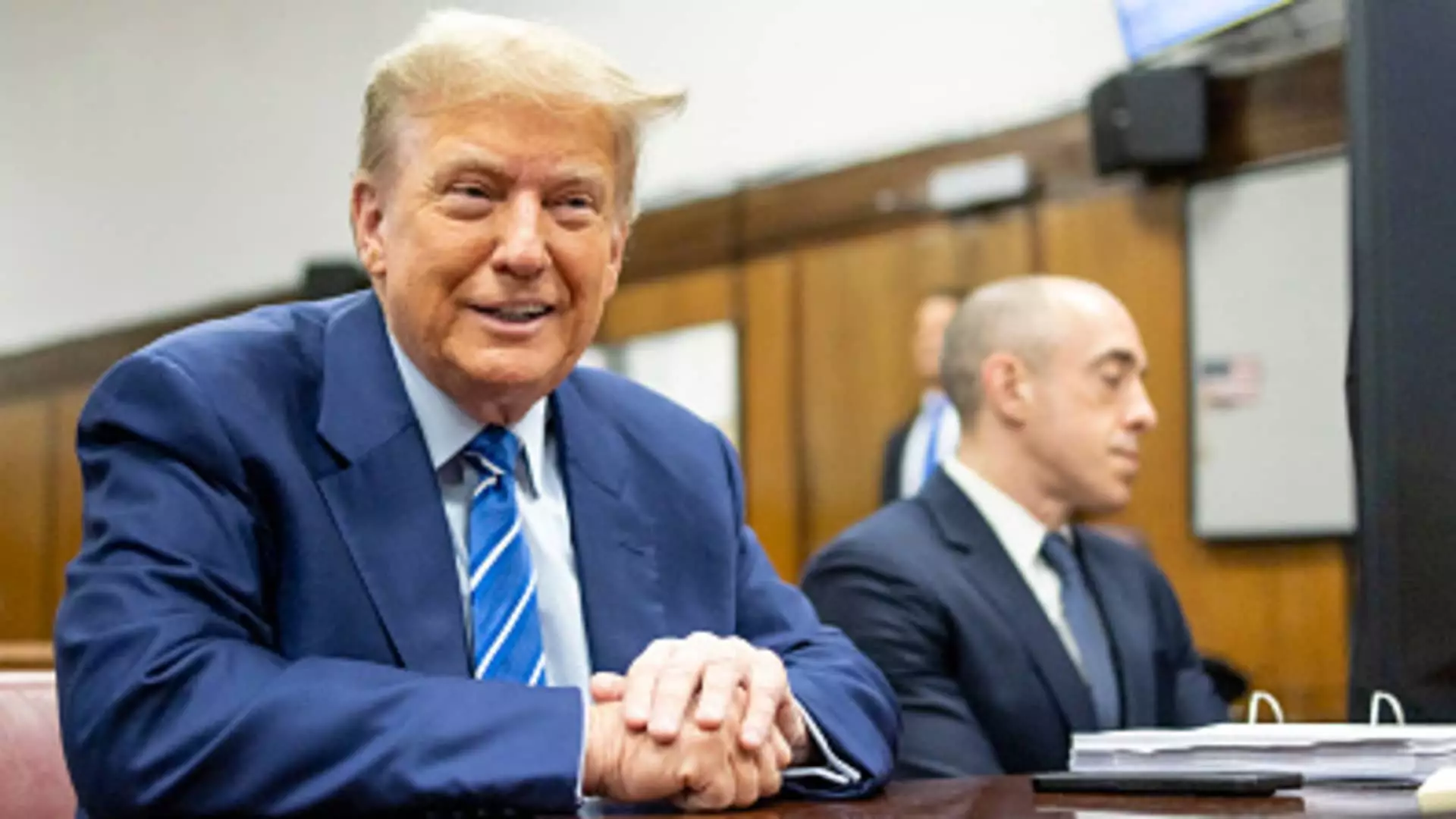In a significant and unexpected development, a New York judge has postponed the sentencing of President-elect Donald Trump in a notable hush money case. This decision comes amidst heated legal battles surrounding Trump, who was found guilty on 34 counts of falsifying business records earlier this year. Although the ruling has created a temporary pause in the proceedings originally scheduled for next Tuesday, it also opens the door for Trump’s legal team to seek dismissal of the charges, raising numerous questions about the intersection of law and politics.
Judge Juan Merchan’s recent decision has sparked a mix of relief and renewed vigor among Trump’s attorneys, who are now poised to present arguments for the case’s dismissal. Trump’s legal representation, including high-profile lawyers like Todd Blanche, contends that Trump, both as president and president-elect, is entitled to immunity from prosecution—an assertion rooted in the principle that a sitting president cannot face criminal charges. This legal interpretation is not entirely without precedent; however, the extent and applicability of such immunity remain points of contention that could shift based on the evolving legal landscape.
The Manhattan District Attorney’s Office, while supportive of the delay to allow for Trump’s lawyers to make their case, has echoed intentions to oppose the dismissal efforts. This dual posture reflects a broader strategy that both sides are employing in a high-stakes legal environment, where political consequences loom large over judicial proceedings.
At the heart of the hush money case is a payment made by Trump’s former attorney, Michael Cohen, to adult film actress Stormy Daniels in exchange for her silence regarding an alleged affair. While Trump has consistently denied the affair, claiming that the prosecution is politically motivated, the jury’s conviction on all counts indicates that the legal system did not find merit in Trump’s defenses at the trial stage. The mounting evidence and Cohen’s testimony opened up a plethora of legal challenges for Trump, transforming what initially appeared to be a straightforward case of business practices into a complex interplay of legal technicalities and public perception.
As Trump’s legal battles unfold, public sentiment appears divided. Those loyal to Trump view the case as a political witch hunt, while critics argue that it illustrates a serious disregard for the law. Trump’s spokesman, Steven Cheung, hailed the postponement as a significant win, characterizing the ongoing legal pursuits against Trump as “sham lawfare attacks.” Such rhetoric not only galvanizes Trump’s support base but also complicates broader discussions around accountability and justice in the political sphere.
The hush money case is only one of several legal challenges Trump currently faces. With several other criminal matters pending—ranging from allegations of election interference to mishandling classified documents—the implications of the judge’s ruling extend beyond this single case. Pending outcomes in related cases, particularly two federal cases anticipated to be abandoned as Trump assumes office, could reshape the landscape significantly for him both legally and politically.
Additionally, a state-level case against Trump in Georgia looms in the background and remains unresolved. Legal experts predict that this situation could prolong judicial proceedings for an extended period, creating a convoluted timeline for Trump as he steps into office once again, in the wake of a tumultuous election cycle.
The indefinite postponement of Trump’s sentencing illustrates the intricate relationship between law and politics. As the arena in New York grows increasingly complex, with multiple high-profile legal figures contesting outcomes, the looming specter of political influence and personal stakes complicates what should ideally be a straightforward legal process.
This moment of respite allows Trump’s camp to regroup and strategize, all while drawing national attention to the ongoing conflation of political ambitions and judicial accountability. The outcome of Trump’s legal battles may well set the tone for not only his upcoming presidency but also the broader conversation surrounding governance, legality, and the lasting impact of past actions on future leadership.


Leave a Reply